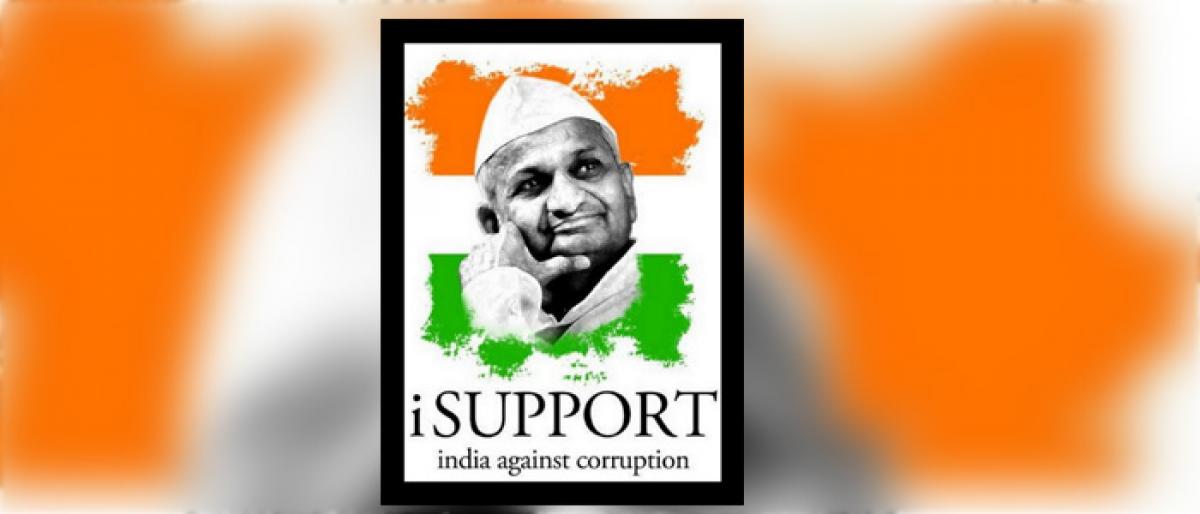Live
- Karumuri, Kamineni, Meka submit nominations
- Guntur: Team of retd IAS, IPS officers to check irregularities in polls
- Chirala: Amanchi confident of securing 50% votes
- Kavitha to be in Tihar Jail till May 7
- Elon Musk to Enter the Smart TV Market with the X TV App
- Ongole: Bhashyam school students excel in SSC
- SRMJEEE 2024 Phase I exams conclude
- Rajamahendravaram: Drawing contest held on reading habits
- VIT-AP bags Education Excellence Award
- Chief Secretary reviews arrangements for V-P visit
Just In

The Indian anti-corruption movement, commencing in 2011, was a series of demonstrations and protests across India intended to establish strong legislation and enforcement against perceived endemic political corruption. The movement was named among the \"Top 10 News Stories of 2011\" by Time magazine.
The Indian anti-corruption movement, commencing in 2011, was a series of demonstrations and protests across India intended to establish strong legislation and enforcement against perceived endemic political corruption. The movement was named among the "Top 10 News Stories of 2011" by Time magazine.
The movement gained momentum from 5 April 2011, when anti-corruption activist Anna Hazare began a hunger strike at the Jantar Mantar in New Delhi. The chief legislative aim of the movement was to alleviate corruption in the Indian government through introduction of the Jan Lokpal Bill. Another aim, spearheaded by Ramdev, was the repatriation of black money from Swiss and other foreign banks.
Grievances of mass protesters focussed on legal and political issues, including political corruption, kleptocracy, and other forms of corruption. The movement was primarily one of non-violent civil resistance, featuring demonstrations, marches, acts of civil disobedience, hunger strikes, and rallies, as well as the use of social media to organise, communicate, and raise awareness. The protests were nonpartisan and most protesters were hostile to attempts made by political parties to use them to strengthen their own political agendas.
The Supreme Court of India issued notices to the Union Home Secretary, Chief Secretary of Delhi, Delhi administration, and Delhi Police Commissioner expressing its displeasure that the entire contents of the petition had been leaked to the media before the matter came up for hearing. On 29 August 2011, the Court blamed the Delhi Police for the forcible eviction.
After failing to press government to pass The Lokpal Bill, 2011, the Team Anna split on issue of formation of political party. Anna Hazare and some others did not want to enter mainstream politics while Arvind Kejriwal led India Against Corruption opined to join politics. Arvind Kejriwal and others finally formed new political party, Aam Aadmi Party(AAP) on November 26, 2012.

© 2024 Hyderabad Media House Limited/The Hans India. All rights reserved. Powered by hocalwire.com







